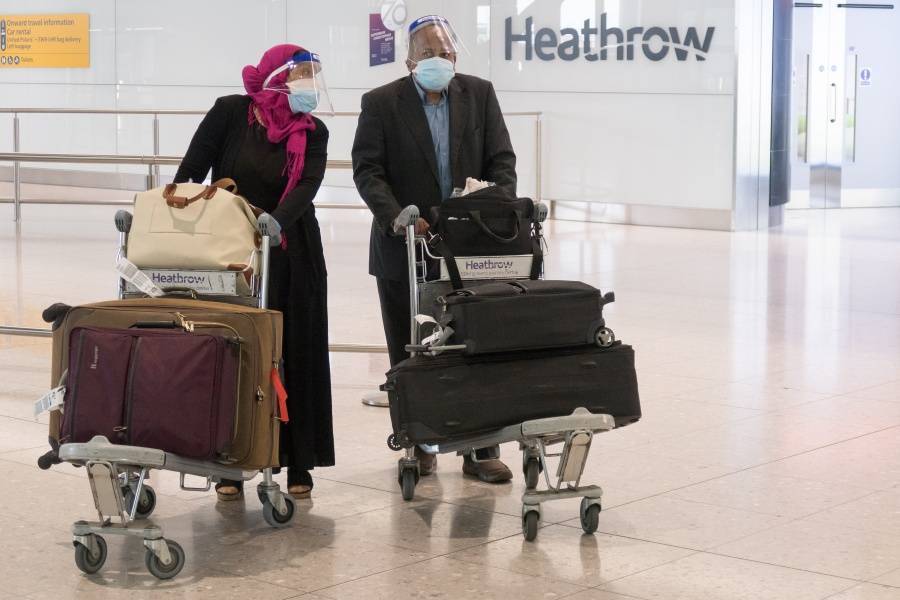The government had been considering the idea of a new level in the government’s traffic light system for overseas travel, ahead of the next review this week, it reported…reports Asian Lite News.
The UK government has abandoned a proposal to create an “amber watch-list” of countries at risk of moving to red in the travel traffic light system, media reported.
The latest move comes after Prime Minister Boris Johnson said he wanted a “simple” and “balanced approach” to pandemic travel, the BBC reported.
The sources in the government told BBC that no new categories would now be added. The opposition lawmakers and travel industry figures earlier warned a complex system risked putting people off from travelling.
The government had been considering the idea of a new level in the government’s traffic light system for overseas travel, ahead of the next review this week, it reported.
It would have warned people when a destination was at risk of a sudden shift from amber to red – meaning that travel would be banned for everyone except UK nationals and residents, who would be required to quarantine in a hotel on their return.
Meanwhile, UK has reported another 21,952 coronavirus cases in the latest 24-hour period, bringing the total number of coronavirus cases in the country to 5,902,354, according to official figures released Monday.
The country also recorded another 24 coronavirus-related deaths. The total number of coronavirus-related deaths in Britain now stands at 129,743. These figures only include the deaths of people who died within 28 days of their first positive test.
Fewer contacts to isolate
Fewer contacts of people with Covid-19 will be told to isolate by the NHS (National Health Service) Test and Trace app after an update, Sky News reported on Monday.
It will now only look back at contacts two days before someone tests positive, as opposed to five days of contacts the app was tracking before, according to the report.

While this will not impact the sensitivity of the app, the change will mean fewer people who were in contact with a person when they were unlikely to be at the peak of their infectiousness will be told to self-isolate, according to the government.
“We want to reduce the disruption that self-isolation can cause for people and businesses, while ensuring we’re protecting those most at risk from this virus,” Health Secretary Sajid Javid said. “This update to the app will help ensure that we are striking the right balance.”
“It’s so important that people isolate when asked to do so in order to stop the spread of the virus and protect their communities,” he added.
The latest development came as supermarkets, emergency services, public transport and postal deliveries had all been hit by staff shortages due to a record number of people told to isolate by the app.
New analysis shows the app reduces the spread of COVID-19 by around 4.3% each week, and for every 200-250 tests entered and shared in the app one person is prevented from being hospitalised from the virus.
Usage remains high, with around 40% of the eligible population regularly using the app and around 50% of all reported tests being inputted.
England recently lifted most Covid-19 restrictions as part of the final step of the roadmap out of the lockdown. Scientists have warned that lifting all restrictions at this stage could increase likelihood of dangerous variants.
More than 88 per cent of adults in Britain have received the first jab of Covid-19 vaccine and more than 72 per cent have received two doses, according to the latest figures.
To bring life back to normal, countries such as Britain, China, Russia, the US as well as the European Union have been racing against time to roll out coronavirus vaccines.
ALSO READ-HK, Taiwan added to England’s green travel list
READ MORE-Vaccinated amber-list travellers could skip quarantine

